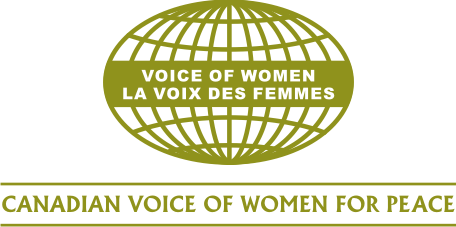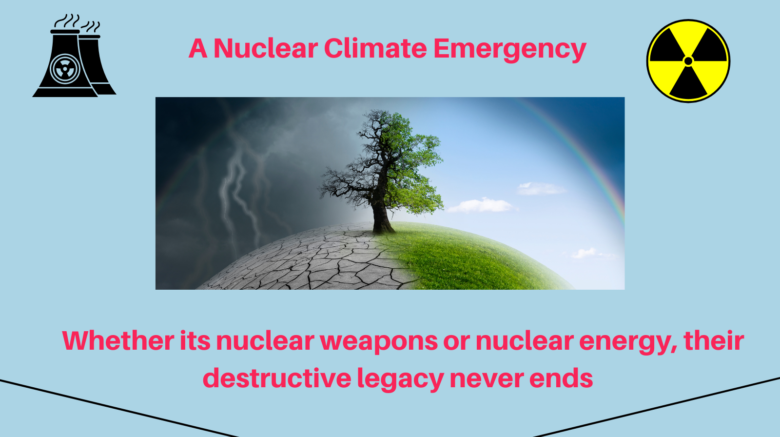By Sarah Rohleder, VOW Peace Campaign Intern —
Over the past few weeks activists have been working to highlight the intersection of militarization and climate change that governments around the world seem eager to forget about. This link is evident in many countries across the world as they are facing the devastating effects of climate change in addition to the long-lasting impacts of nuclear testing, uranium mining and radiation. These countries include the Marshall Islands, Kazakhstan, various areas in the United States, Pakistan, India, Australia and French Polynesia among many others.
Nuclear weapons could be the greatest threat to the earth’s climate as even the detonation of 0.5% of current stockpile of nuclear weapons would start firestorms releasing smoke into the atmosphere that would blanket the globe in a few weeks. This would cause the Earth to get cool, dry and dark for more than two decades in what has been dubbed a nuclear winter. In the stratosphere this would cause a rise in temperature by more than 50 degrees Celsius, further depleting the ozone layer which would cause a rapid global warming as soon as the nuclear winter ends.
Even today areas that have experienced nuclear testing have become uninhabitable. We all know the story of Chernobyl, the worst nuclear power accident, which caused millions of acres of forest and farmland to be contaminated, resulting in deformation in animals. This is only one example in what has become a growing list of nuclear disasters. These accidents show the immense consequences that result from simple mistakes or unthought of possibilities such as Fukushima, where a tsunami hit the plant. When the backup power and cooling systems failed radiation reactors exploded, releasing a high level of radiation.

Despite this, more nuclear reactors continue to be built, polluting the earth through uranium mining and nuclear fuel and also contaminating plants, animals and waterbodies impacting whole ecosystems. In Canada Indigenous communities have been disproportionately impacted by these issues. The creation of small modular reactors (SMRs) here in Canada have presented a new nightmare, as the Canadian government has chosen to exempt all SMRs from the federal environmental assessment under the Impact Assessment Act. This is devastating for nature and for the animals and Indigenous communities that live in these areas. Much of this is being done without the consultation or approval of the Indigenous communities, many of which have already been impacted by nuclear accidents. Nuclear energy creates a cycle of destruction and contamination that never ends.
The problem of nuclear waste persists, whether it be from uranium mining, nuclear energy, or nuclear weapons. No country on Earth has found a solution. The radioactivity of nuclear waste can last anywhere from 1000 – 10 000 years if not longer. Making it a legacy that will be passed down onto our children, and their children after them, and so on. Uranium mining leaves behind 85% radioactivity in its tailings, which must be managed for thousands of years. If our use of uranium to fuel nuclear devices continues, the amount we pass down will only grow creating a nuclear legacy that will never end, long after any of us are alive.
Nuclear weapons and nuclear energy have devastating environmental impacts that will only cause lasting harm to the planet and our future generations. We cannot allow this to continue, we need countries to work together on the Treaty on the Prohibition of Nuclear Weapons article centering around environmental remediation and to recognize the impact that the production, use and nuclear waste has on the environment. Once that is done we need to put pressure on world leaders to halt their nuclear activities or else the future may hold a nuclear legacy that no living thing will recover from.

